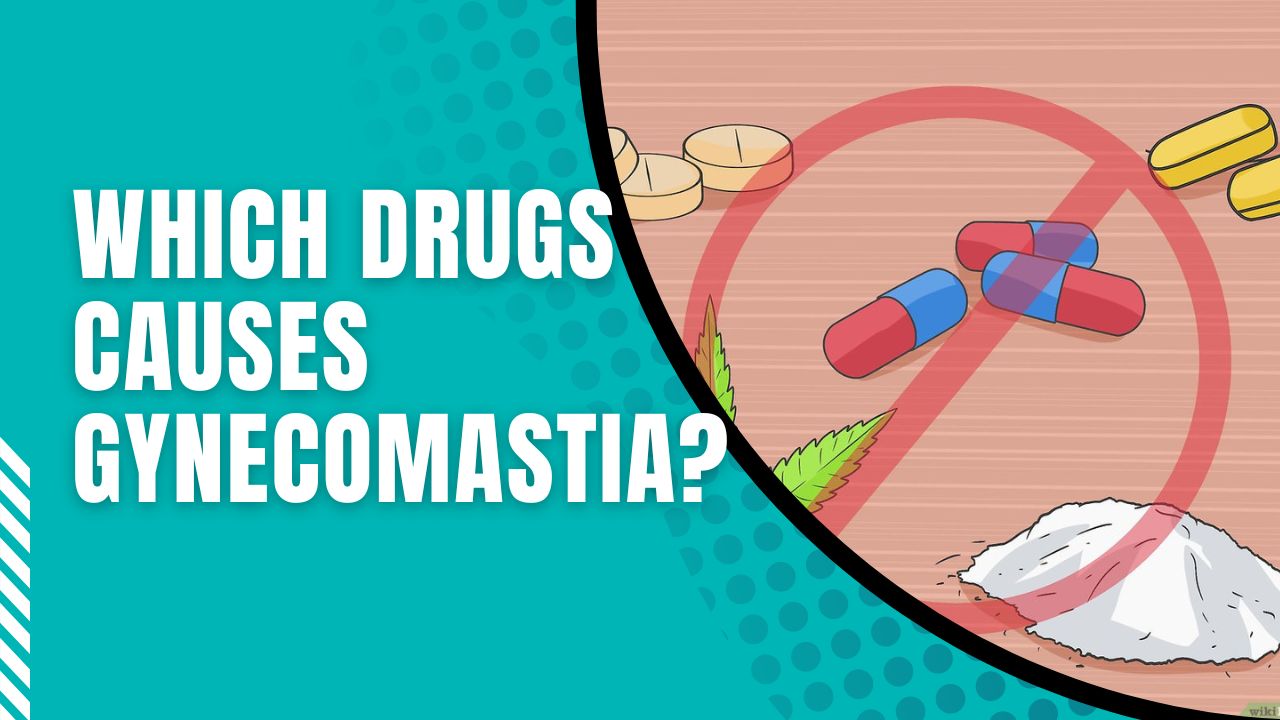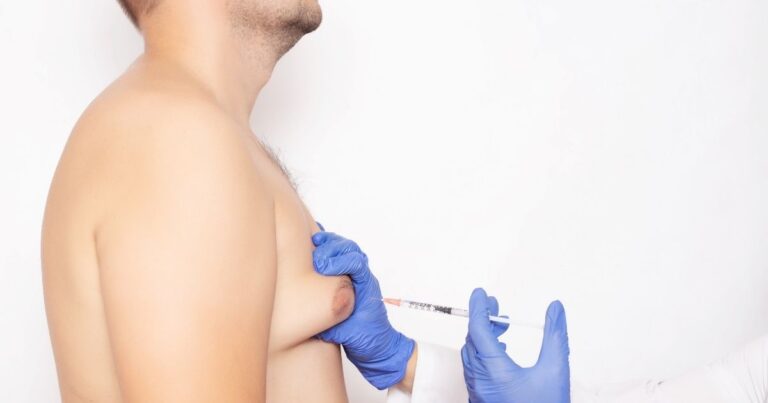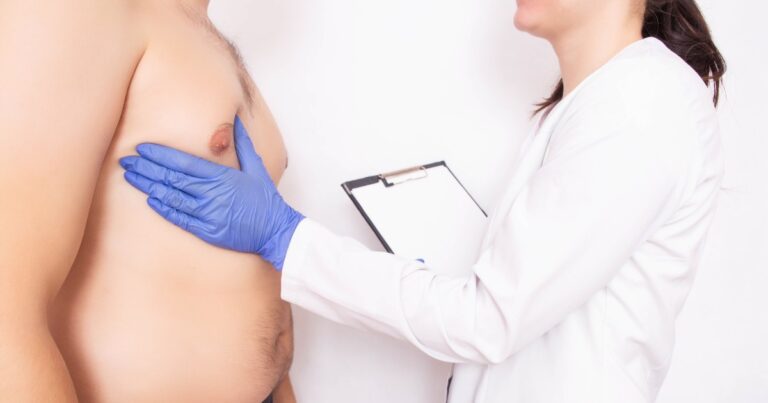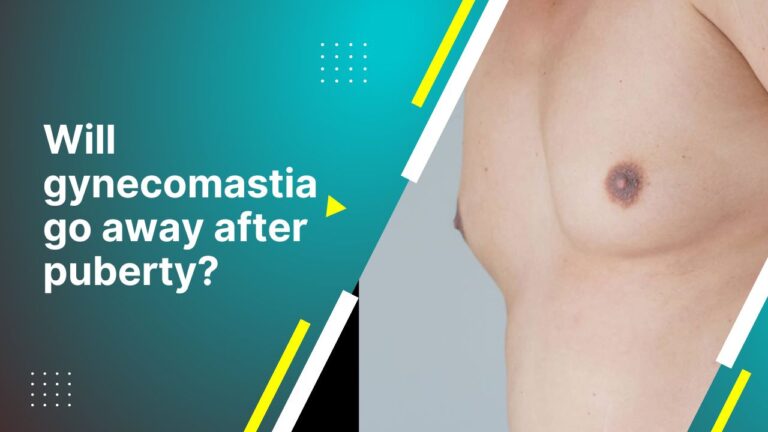Gynecomastia is a medical term used to describe a condition where males develop breasts. Medications with a high probability of causing gynecomastia to include some antipsychotics and several prostate cancer medications. A few of these medications have side effects that are either mild or extreme, external or internal, and long-lasting, while others last for a short while. Gynecomastia is a side effect of certain medications, but it is not considered a serious medical condition.
This article covers certain drugs that cause gynecomastia, drugs that treat gynecomastia, and each of their functions in relation to gynecomastia and other diseases.
See related: Gynecomastia Surgery Cost.
Which Drugs Causes Gynecomastia?
These medications alter testosterone and estrogen levels in the body in certain ways, which results in gynecomastia. They are further discussed below:
Book A Consultation With Dr Tarek Bayazid
Top-rated Plastic Surgeon For Gynecomastia in Dubai
Installment Plan Available
Elevated Prolactin Levels
Prolactin is a natural hormone in the body that aims to promote mammal milk production. Lactotroph cells are also produced by prolactin in the pituitary glands. The cells are then stored and released into the bloodstream. Prolactin is available in men and women but is predominantly found in women. Too much prolactin causes hyperprolactinemia, leading to gynecomastia and erectile dysfunction in men.
Medications that elevate the levels of prolactin are:
Estrogen
Estrogen is a hormone found in men and women but is mostly present in women. Men have a small percentage of estrogen in their bodies. Certain medications raise estrogen levels in men leading to gynecomastia. Drugs known to cause signs and symptoms of gynecomastia by raising estrogen levels are as follows:
Anti-androgen Effects
Androgens are also found in the body, including testosterone and dihydrotestosterone. The two hormones are vital for male reproductive system development and other sexual functions. Androgens block the effects of estrogen in men, but some drugs prevent the androgens from performing their functions. The medications include:
Consulting your desired pharmacist for the exact effects of each mentioned medication is imperative before halting intake.
Which Drugs Treat Gynecomastia?
As a person with gynecomastia, the obvious first step is to stop taking medication that causes gynecomastia. But before discarding the drugs, it is important to get clearance from your healthcare provider. The healthcare provider will assure a safe gynecomastia surgery. The symptoms will resolve themselves over time.
Medications that can treat gynecomastia include
Tips to Avoid Drugs That Causes Gynecomastia
Gynecomastia refers to the enlargement of breast tissue in males, which can be due to several reasons, including the intake of certain drugs. Here are some tips to avoid them:
| Drug Category | Tips to Avoid |
| Anti-androgens | 1. Use alternative medications if available. 2. Consult with a healthcare provider before starting. |
| AIDS medications | 1. Review side effects before starting. 2. Monitor for symptoms. |
| Anti-anxiety medications | 1. Opt for non-pharmacological anxiety management. 2. Use lowest effective dose. |
| Antibiotics | 1. Use only when prescribed. 2. Finish the prescribed course. |
| Antidepressants | 1. Discuss potential side effects with provider. 2. Consider alternative treatments. |
| Anti-ulcer drugs | 1. Consider alternative medications for ulcers. 2. Avoid long-term use unless necessary. |
| Chemotherapy | 1. Discuss side effects with an oncologist. 2. Regular monitoring during treatment. |
| Heart medications | 1. Consult about alternative medications. 2. Monitor for side effects. |
| Stomach motility medications | 1. Use only when necessary. 2. Opt for short-term use. |
| Recreational drugs | 1. Avoid recreational drug use. 2. Seek addiction help or counseling. |
| Hormones | 1. Avoid non-prescribed hormone use. 2. Consult an endocrinologist for hormone therapies. |
| Others | 1. Use only when prescribed. 2. Monitor for side effects. |
Conclusion
Gynecomastia is a common occurrence among men. Certain medications meant to treat prostate cancer can have effects that lead to gynecomastia. Fortunately, some other medications, like bromocriptine, can reverse the effects of gynecomastia and aid in recovery. Taking care of yourself after gynecomastia surgery is important during recovery.
At Dr. Tarek’s Aesthetics, free follow-ups with the free change of the lost surgical dressing if necessary. Dr. Tarek understands the concept of facial harmony and gives his patient a natural look after his surgeries or injectables such as botox and filler. He will also suggest one facial LPG massage before undergoing botox or filler treatment or 3 sessions one week before having a facial surgery with him. With over 15 years of surgical experience and a decade of operating in Dubai, Dr. Tarek uses the newest technology during body contouring surgeries, such as Bodytite, J-plasma, Vaser machine, and the power-assisted liposuction device for effectively removing the accumulated fat. He also uses power-assisted devices for re-injecting the suctioned fat to achieve a more desired contour of the body. Dr. Tarek Bayazid is a proud member of:
Kindly book a consultation with us today to get your gynecomastia treated.









